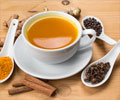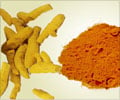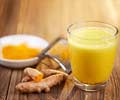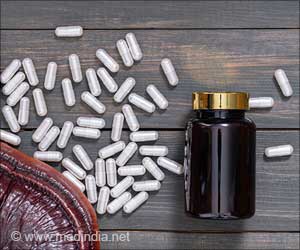Turmeric isn’t just a spice- it may help antibiotics fight deadly infections! New research shows curcumin boosts drug efficiency against superbugs.
- Curcumin, the active compound in turmeric, enhances the effectiveness of the antibiotic bedaquiline in fighting M. abscessus infections
- Combining curcumin with bedaquiline prevents bacteria from regrowing, making it a promising solution against antibiotic resistance
- Researchers are now studying the molecular mechanisms behind this combination to develop new treatments for resistant infections
Seabirds in crisis: Plastic ingestion induces proteomic signatures of multiorgan failure and neurodegeneration
Go to source).
Curcumin, found in turmeric, has been used in Ayurvedic medicine for over 4,000 years and is now being studied as a weapon against superbugs! #turmericpower #antibioticresistance #superbug #naturalhealing #curcuminbenefits #medindia’
Adding Turmeric Enhaces Efficiency of Medicine Used to Treat M. abscessus Infections
Add a little spice to your treatment, according to a study that was published this week in Microbiology Spectrum. Researchers at Shanghai Jiao Tong University, in China, showed that adding curcumin enhances the efficiency of bedaquiline, an antimycobacterial used to treat tuberculosis, in fighting M. abscessus infections. The substance that gives turmeric its distinctively vivid orange hue is called curcumin.Turmeric Could be Beneficial in Immunocompromised People
The study's principal author, microbiologist Zhe Wang, Ph.D., stated that "this low-toxicity natural product combined with existing drugs could pioneer new treatment pathways for resistant infections." Wang continued, "It's especially relevant in immunocompromised populations, who are more susceptible to these infections."Wang's lab focuses on novel methods of treating infectious diseases, such as repurposing existing medications and figuring out how to mix natural products with established therapies. They were aware that M. abscessus treatment frequently has poor results- previous research has shown that only roughly half of patients who get treatment become non-infectious.
In addition to being used to treat multidrug-resistant tuberculosis, bedaquiline has demonstrated some promise in treating the symptoms of mycobacterial diseases other than tuberculosis, such as M. abscessus. The medication does not, however, completely eradicate all of the pathogenic microorganisms from a sample.
Health Benefits of Curcumin
Curcumin, which has long been used in traditional Asian medicine to treat a wide range of diseases, was examined by the researchers in an effort to increase the effectiveness of bedaquiline. Curcumin may have anti-TB properties, according to earlier pharmacological research (2✔ ✔Trusted SourceEffect of Curcumin in Experimental Pulmonary Tuberculosis: Antimycobacterial Activity in the Lungs and Anti-Inflammatory Effect in the Brain
Go to source).
Can Turmeric Help Fight Antibiotic-Resistant Infections?
In laboratory experiments, the researchers discovered that while bedaquiline by itself initially stopped M. abscessus from growing, the bacteria eventually started to proliferate again after two weeks. However, the medication and curcumin together inhibited the bacteria's growth and reproduction, indicating that curcumin might function as a breaker of antibiotic resistance. In both immunocompromised and healthy mice, the researchers discovered that the therapeutic combination was more effective than either molecule alone at slowing or stopping infection. "The combination exhibits improved infection clearance and synergistic enhancement of antibacterial activity," Wang stated.The precise molecular targets that contribute to the mechanisms underlying the combo therapy's benefits are currently being examined by the researchers. In order to get ready for clinical trials and, eventually, the creation of novel treatments, they are also assessing the combination's safety and comparing it to other resistant mycobacterial strains. "This study demonstrates the creative potential of fusing natural products with drug repurposing," Wang stated.
References:
- Seabirds in crisis: Plastic ingestion induces proteomic signatures of multiorgan failure and neurodegeneration - (https://pubmed.ncbi.nlm.nih.gov/40073124/)
- Effect of Curcumin in Experimental Pulmonary Tuberculosis: Antimycobacterial Activity in the Lungs and Anti-Inflammatory Effect in the Brain - (https://pubmed.ncbi.nlm.nih.gov/35216083/)
Source-Medindia











